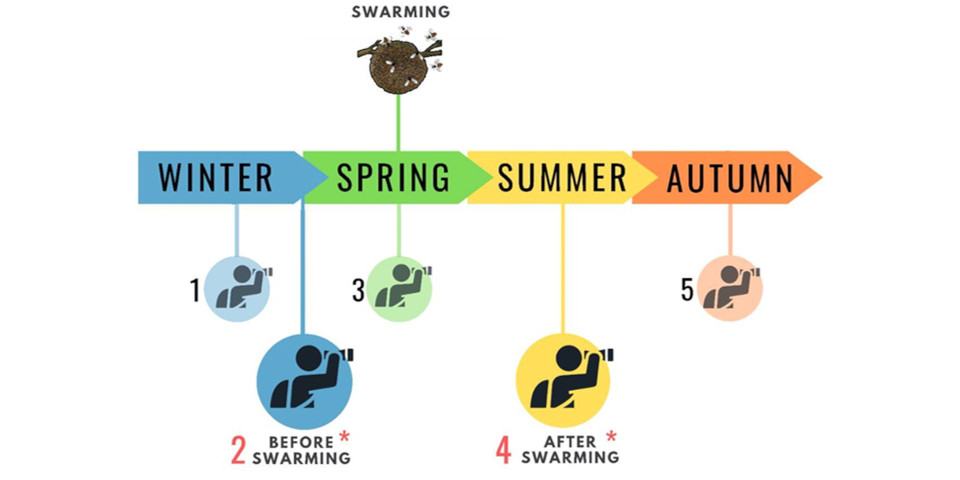Despite their ecological significance, wild Apis mellifera populations remain critically understudied. Addressing this research gap requires the study and monitoring of free-living colonies to identify potential self-sustaining populations. However, a lack of standardized methodologies has hindered these efforts. To address this challenge, Honey Bee Watch, an international coalition dedicated to studying free-living honey bees, has developed a comprehensive monitoring protocol. This protocol offers a consistent methodology for researchers and citizen scientists to collect vital data on colony survival, activity, and environmental conditions. It emphasizes monitoring at five key phenological stages throughout the year to ensure the collection of scientifically robust data. Additionally, an illustrated guideline is provided to help users accurately identify and track colonies, enhancing data accuracy. The adoption of this protocol by both the scientific community and citizen scientists will not only strengthen research efforts and foster public engagement, but also help close existing knowledge gaps regarding the distribution and density of wild A. mellifera populations, ultimately guiding more effective conservation strategies.
2417 Members
127 Countries!
127 Countries!










